#Geechee and Gullah Culture
Explore tagged Tumblr posts
Text

#iykyk#black spirituality#lowcountry#black power#black history#black people#black stories#black beauty#black culture#black history month#hoodoo#soulaan#soulaani#black americans#not like us#they not like us#black tumblr#Sir-Illmatic#gentillmatic#south carolina#gullah geechee#gullah#conjure#sinners#african traditional religions
87 notes
·
View notes
Text

A rice raft with Gullah Geechees near Georgetown, S.C., in 1904.
Photo: College of Charleston Stereoscopic Views, Special Collection, Addlestone Library.
125 notes
·
View notes
Text

These Afro-American folklore stories are so beautiful. I especially like that within the horror ones, we’ve been running away from scary ish. We’ve been not dying from scary things. We know when to run. I also like there’s also a mermaid and fairy tale too. But these stories were so much fun to read.
@queen-shiba you’ll love this.
#soulaan#afro american#black American#Afro American folklore#black folklore#blackblr#afro American culture#soulaan culture#gullah geechee#black culture#black fairy#black mermaid#soulan
58 notes
·
View notes
Text
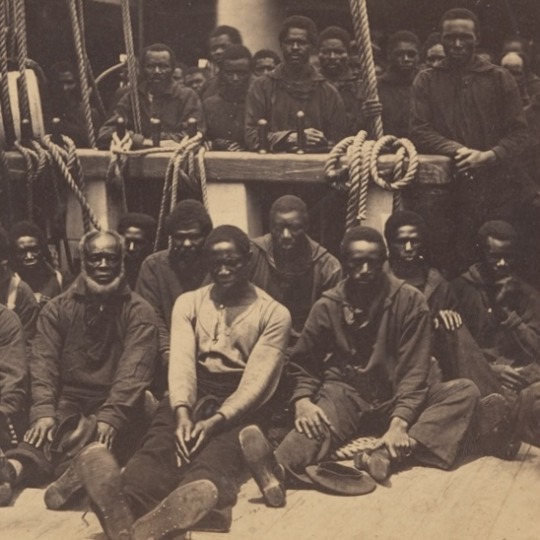
Historians from Southern Illinois University in the Africana Studies Department documented about 20 title words from the Kikongo language are in the Gullah language. These title words indicate continued African traditions in Hoodoo and conjure. The title words are spiritual in meaning. In Central Africa, spiritual priests and spiritual healers are called Nganga.
In the South Carolina Lowcountry among Gullah people a male conjurer is called Nganga. Some Kikongo words have a "N" or "M" in the beginning of the word. However, when Bantu-Kongo people were enslaved in South Carolina the letters N and M were dropped from some of the title names. For example, in Central Africa the word to refer to spiritual mothers is Mama Mbondo. In the South Carolina Lowcountry in African American communities the word for a spiritual mother is Mama Bondo. In addition during slavery, it was documented there was a Kikongo speaking slave community in Charleston, South Carolina
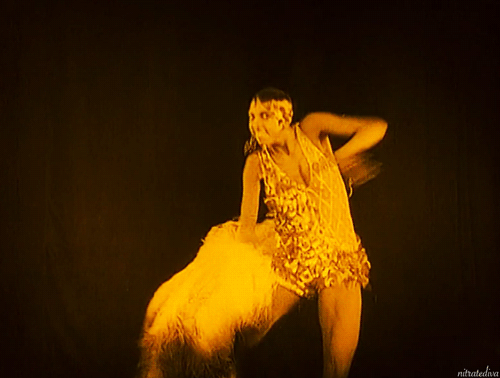
#nganga#mama mbondo#slave community#charlestonch#charleston south carolina#afrakan#kemetic dreams#africans#african#brownskin#brown skin#afrakans#african culture#afrakan spirituality#central africa#kikongo language#gullah#gullah geechee#gullah gullah island
97 notes
·
View notes
Text
African American Culture (Gullah)- Sweetgrass baskets
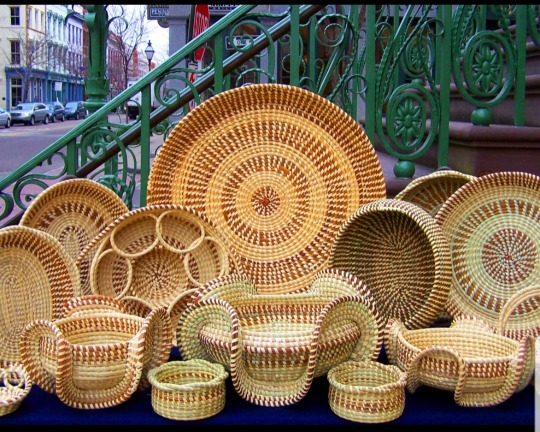
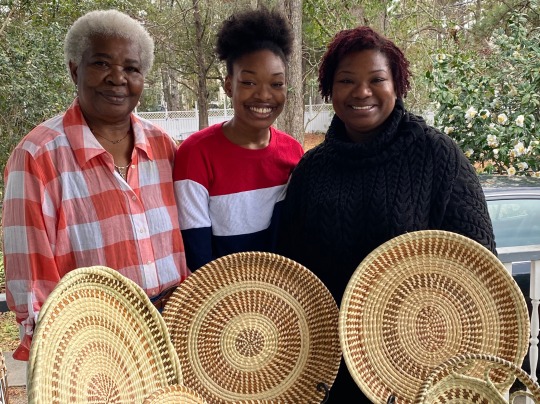
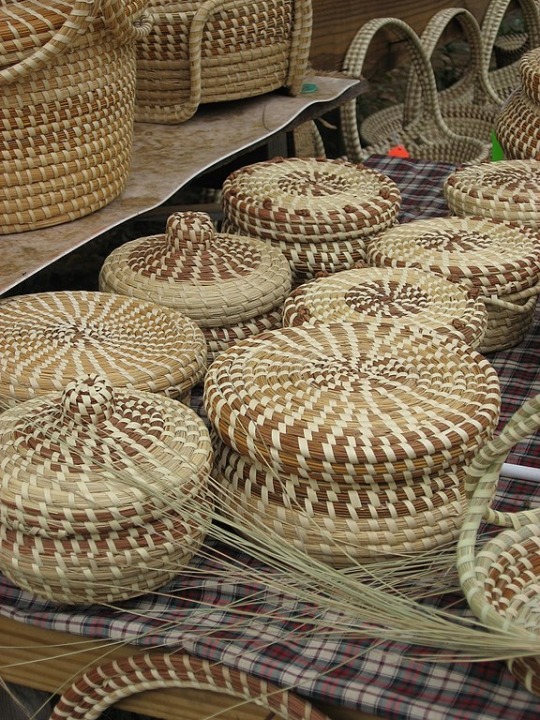

#aa culture#african american#black americans#culture#african american culture#tradition#sweetgrass baskets#gullah geechee#black american culture
114 notes
·
View notes
Text
Absolutely shattered by the tragedy on Sapelo Island, GA yesterday.
It's a very small community of Gullah Geechee people and the ferry gangway collapsed at the end of a day of cultural celebration.
At least seven people are dead. More are missing or in critical condition.
I don't know of alternative links for aid at this time, but I know the Sapelo Island Cultural and Revitalization Society has a donation link for their organization at the bottom of the page and can use all of the help they can get.
The community of Hogg Hummock itself is mostly compromised of older residents on fixed incomes, so any assistance to help them get through this tragedy would be a big help.
#gullah geechee#Sapelo island#black culture#cw death#fundraiser#I don't know what to tag this for attention so please please share#I'd include SOLO as another route for donations but afaik that's only run by one guy and I can't find any word if he's okay#I am not Gullah Geechee and I do not live on Sapelo but this community has my full support and love#The linked organization is run by Gullah Geechee people directly
4 notes
·
View notes
Text
#gullah geechee#gullah geechee heritage month#gullah culture#rice#jollof rice#gumbo#callaloo#jumbalya#west africa connection#food ways#caribbean#lmsu
3 notes
·
View notes
Text
youtube
Southern Diversity
11 notes
·
View notes
Photo
These are not only lovely and amazing works of art, they really do smell sweet!
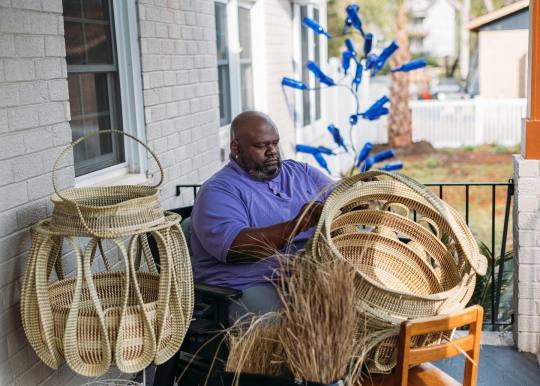
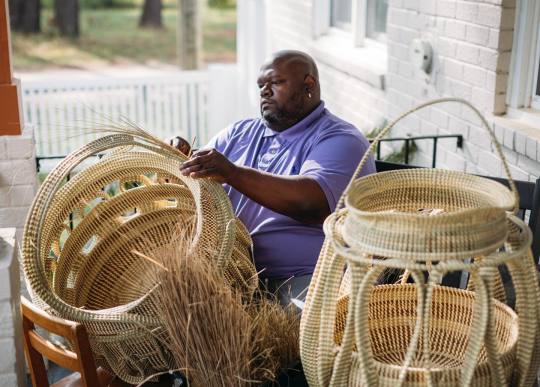
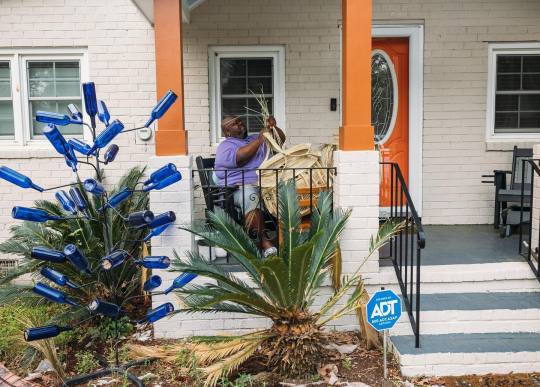

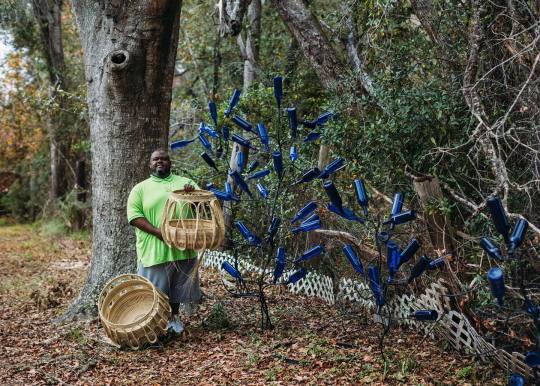


Corey Alston (Mount Pleasant, SC)
“My name is Corey Alston. I’m a fifth generation Sweetgrass Basket Weaver. I currently run the family business in the Charleston City Market. Sweetgrass Basket Weaving has been a major part of the Gullah Geechee Culture dating back to days of Enslavement. This coastal art form has been recognized as South Carolina State Handcraft and has been known to be kept alive the longest along Sweetgrass Basket Makers HWY of South Carolina. This skill is one of the rare arts of our country that is founded nowhere else in America. Gullah Sweetgrass Baskets are a national treasure.
“Being chosen as one of the artisans of Mt. Pleasant does not only bring awareness to my skill set and my culture as a Gullah Geechee representative, but in collaboration with Acres of Ancestry raises awareness of the unjustifiable treatment that Black and minority farmers have endured. The more that this topic is brought to the forefront, the more that our nation’s leaders will see that treating white farmers one way and then treating Black farmers another way will not be accepted. I applaud Acres of Ancestry for working tirelessly on making sure that everyone understands what our elder farmers are going through.
“These two Sweetgrass Baskets are called ‘Poppa’ and ‘Big Momma.’ It took six months to complete ‘Big Momma’ and four months to complete ‘Poppa.’ They both measure 36 inches tall.”
—Corey Alston, fifth generation basket weaver and cultural preservationist from Mount Pleasant, SC, Artisan Statement
#sweetgrass baskets#traditional handicrafts#african american culture#gullah geechee art#gullah geechee culture
18K notes
·
View notes
Text
Unity in the Black Community
WE. ARE. JUDEA.
1) Tribes in Kenya have traditionally circumcised for generations
The example below is from the Masai people


(source)
FYI: Kenya is south of Egypt and Israel. Meaning they're close-ish to a lot of Biblical narratives.
Circumcision is a significant sign of a covenant with Yahuah.

2) The Meru people (also from Kenya) have an oral historical account that tells of them crossing the Red Sea BY A MAN DIVIDING THE WATER
BY STRIKING IT
WITH A STAFF.
THATS OBVIOUSLY MOSES.

(source)
3) THE EUROPEANS HAVE BEEN BAMBOOZLING US.



UTTERLY BAMBOOZLING US.

They've been hiding this information from us because we would know that Exodus and Joel is VERY applicable to us.
Don't you think it's weird that they never encourage Exodus or Joel readings in popular Christian outlets?
So here we are Yahuah's people... lost, drunk, and afraid... Forgetting our strength and integrity.
It's time we gird our loins.
Like the song below alludes to, we're still slaves (chains clanging to the sound of an army march)
They never freed us, they only gave us the illusion of freedom.
The army for many black men is servitude. They don't tell you the good positions in the army is locked behind bachelor degrees BECAUSE THEY DON'T WANT YOU TO KNOW.
WE'RE MEANT TO BE THE FODDER.
Let's be so for real, how are we ever going to be free in America? In this current system?
We are systematically enslaved.
The education system purposely ensures that this system self-perpetuates. The castle is on our people's shoulders, and they give us the illusion that we are choosing to uphold it
No, we are not. We didn't choose to be sold from our homeland, we didn't choose to be enslaved all around the world, and we did not choose to be the backbone of America.
We were brutally forced to, and we are practically corralled to today.
We are the foot soldiers of America, we are the servants, and we are the cogs.
Cogs blinded to the fact that we don't have to be cogs, neither do our children.
We can lead ourselves as Yahuah's people.
#unityintheblackcommunity#african diaspora#pan africanism#west africa#north africa#east africa#caribbean#black power#black history#black panther#black culture#black community#black conscious#black femininity#black politics#ghana#nigeria#jamaica#haiti#gullah geechee#south africa#burkina faso#free haiti#guinea#freedom#kenya#kendrick lamar#serena williams#crips#vince staples
1 note
·
View note
Text

RING SHOUT, St. Simon's Island, Georgia, ca. 1940
The ring shout, rooted in the ritual dances of West Africa and forged by the Atlantic slave trade, is believed to be the oldest surviving African-American performance tradition of any kind. Centered in the Gullah-Geechee region of the coastal South, it differs from traditional Black Religious Music in repertory, style, and execution.
#St. Simon's Island#Georgia#Gullah-Geechee#South East Coast#Culture#Spiritual#Tradition#1940#History
36 notes
·
View notes
Text




This is what I mean when I say there’s a collective effort, including others from the diaspora to ethnocide Black Americans/ Soulaans and our culture. I’m Gullah Geechee and no we did not originate in Barbados. We are the descendants of West African slaves. We are a subgroup of AFRICAN AMERICANS (Just like Louisiana Creoles and Black Cajuns(yes I know Creole and Cajun are an ethnicity but most people think of Creole and Cajun as Black and White terms so I wanted to specify)). We don’t need Africa or the Caribbean to validate our culture or ethnicity. We are African American, been African American since we got dropped off on the American colonies and underwent ethnogenesis like everyone else in the diaspora(NOTICE HOW THEY LEAVE AFRO-LATINOS AND CARIBBEANS ALONE WHEN IT COMES TO INVALIDATING THEIR ETHNICITY), literally beenya.
Like ya’ll aren’t going to be doing this during Black History Month. You aren’t and never will be superior to African Americans just because some of you view your culture as more Black or African than ours.
@queen-shiba
#soulaan#african american#ethn0cide#soulaan ethn0cide#cultural ethn0cide#gullah geechee#delineation#yall ain’t bout to do this bs during Black History Month#I’ll tell you that
12 notes
·
View notes
Text
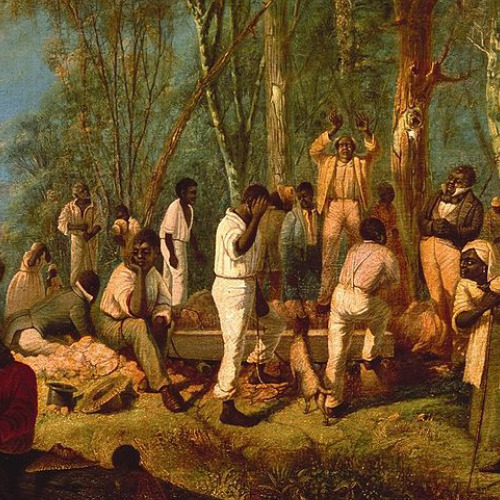
A story from a former slave, Mary Middleton, a Gullah woman from the South Carolina Sea Islands, told of an incident of a slaveholder who was physically weakened from conjure. A slaveholder beat one his slaves badly. The slave he beat went to a conjurer and the conjurer made the slaveholder weak by sunset. Middleton said, "As soon as the sun was down, he was down too, he down yet. De witch done dat." Bishop Jamison was born enslaved in Georgia in 1848 and wrote an autobiographical account of his life. On a plantation in Georgia there was an enslaved Hoodoo man named Uncle Charles Hall who prescribed herbs and charms for slaves to protect themselves from European people.

Hall instructed the slaves to anoint roots three times daily and chew and spit roots towards their enslavers for their protection. Another slave story talked about an enslaved woman named Old Julie who was a conjure woman and was known among the slaves on the plantation to conjure death. Old Julie conjured so much death, her slaveholder sold her away to stop her from killing people on the plantation with conjure. Her enslaver put her on a steamboat to take her to her new slaveholder in the Deep South. According to the stories of freedmen after the Civil War, Old Julie used her conjure powers to turn the steamboat around back to where the boat was docked, which forced her slaveholder who tried to sell her away to keep her.

#african#afrakan#kemetic dreams#africans#brownskin#afrakans#brown skin#african culture#afrakan spirituality#gullah geechee#gullah gullah island#mary middleton#civil war#old julie#deep south#freedman#south carolina island#sea islands#georgia
14 notes
·
View notes
Text
If I must die- Translation Request
Hello! This is a very different type of post I haven’t done before but if any African American who knows one or more languages,such as: Tutnese, Yukish/Yukkish, Gullah, Kouri vini, or ormandi would like to translate the late Palestinian poet Dr. Refaat Alareer’s last poem in those languages please post in the replies or put your translation directly in the Twitter post with other translated languages! Thank you and happy translating!
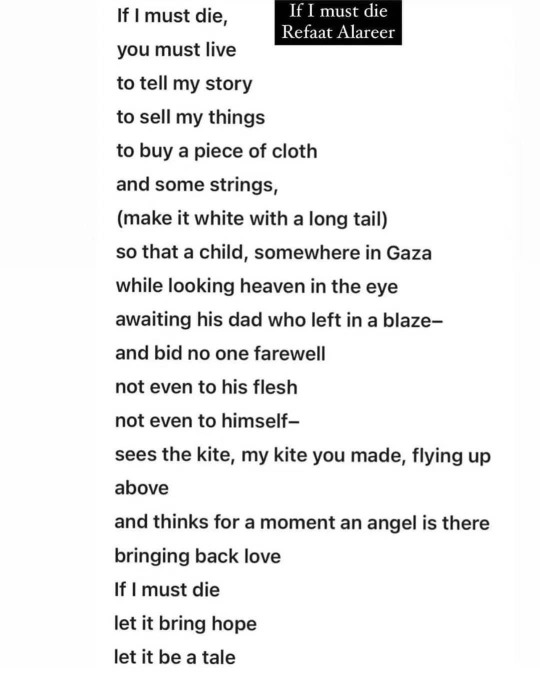
#aa culture#african american#black americans#culture#yen#african american culture#language#tutnese#yukish#yukkish#Gullah#gullah geechee#Kouri vini#ormandi#dr#dr. refaat alareer#refaat alareer
2 notes
·
View notes
Text
How Color Can Define a Culture
0 notes
Text
CLICK THE TITLE LINK TO DOWNLOAD THIS BOOK FREE FROM THE BLACK TRUEBRARY

CLICK THE TITLE LINK TO DOWNLOAD THIS BOOK FREE FROM THE BLACK TRUEBRARY
0 notes